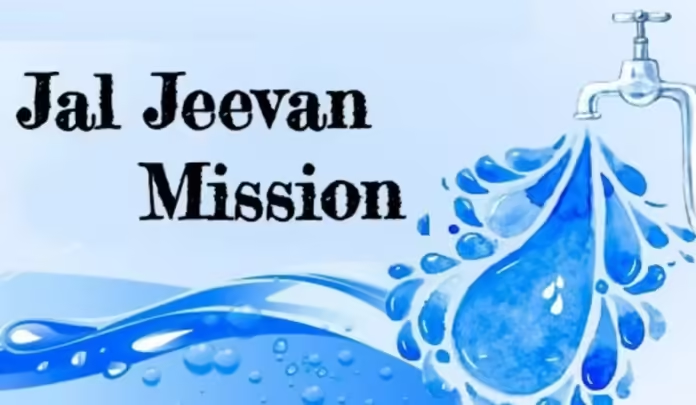The Centre for Urbanization, Buildings, and Environment (CUBE) has initiated a thorough inspection of water supply schemes implemented under the Jal Jeevan Mission (JJM) in Assam. This joint initiative by IIT Madras and the Tamil Nadu government aims to ensure safe, sustainable, and efficient drinking water supply systems in rural areas of Assam. The mission, focused on achieving universal access to clean water, aligns with India’s national objective to provide every rural household with potable tap water.
Purpose of CUBE’s Inspection of Jal Jeevan Mission in Assam
CUBE’s inspection process, which began on November 2, 2024, aims to evaluate the effectiveness and sustainability of water supply schemes deployed across Assam under the Jal Jeevan Mission. The initiative also seeks to identify gaps and make recommendations that enhance the reach and reliability of drinking water services for rural communities. The findings from this inspection will help the Assam government make data-driven decisions to strengthen water infrastructure and ensure long-term water supply.
The Structure of the Inspection: 10 Teams, 20 Experts
To conduct this comprehensive evaluation, CUBE has deployed 10 inspection teams, each comprised of two experts. These teams are tasked with a district-wide assessment of the water supply schemes established under JJM. Over the course of this drive, the CUBE team is expected to inspect approximately 200 water supply schemes across Assam, evaluating their construction quality, operational efficiency, and impact on rural households.
Field Methodology: Engaging with Local Communities and Beneficiaries
The CUBE teams are engaging with a range of stakeholders, including local communities, government officials, and direct beneficiaries of the Jal Jeevan Mission. By interacting with these groups, the inspection team aims to gain a comprehensive understanding of the schemes’ effectiveness and sustainability. This on-the-ground feedback is essential for highlighting challenges faced by rural households and assessing the real-world impact of these water supply initiatives.
Reporting and Recommendations: A Pathway to Improvement
At the conclusion of the inspection drive, CUBE will compile a detailed report for the Assam government, outlining observations and providing actionable recommendations. This report, expected within 15 days of the field assessment’s completion, will guide the government in optimizing water supply systems to ensure a consistent and safe drinking water supply across the state. The insights will be instrumental in identifying areas for improvement and enhancing the operational efficiency of JJM schemes in Assam.
Jal Jeevan Mission in Assam: Significant Progress and Achievements
Assam has made substantial progress under the Jal Jeevan Mission. As of now, 81% of Assam’s rural households—equivalent to around 58.45 lakh households—have access to functional tap water connections. With a goal to cover nearly 75 lakh rural households across 25,000 villages, Assam’s efforts under JJM are paving the way for universal access to clean and sustainable drinking water.
Infrastructure Development: Over 27,000 Water Supply Schemes Implemented
The Jal Jeevan Mission in Assam has facilitated the construction of more than 27,000 piped water supply schemes, with approximately 15,800 of these schemes completed. This extensive infrastructure is central to delivering potable water directly to rural households. The remaining schemes are in advanced stages of development, with the objective of ensuring full coverage across Assam’s rural communities.
Ensuring Long-Term Sustainability Through Water User Committees (WUCs)
A key component of JJM’s success in Assam is the involvement of Water User Committees (WUCs) to maintain long-term functionality of water supply schemes. Over 13,500 completed water supply schemes have been handed over to WUCs, composed of community members who manage the operation and maintenance of these schemes. These committees foster community ownership and empower local citizens to oversee water infrastructure. Remaining schemes will also be transferred to WUCs following a trial period, ensuring consistent and community-driven maintenance of rural water systems.
Strengthening Assam’s Rural Water Infrastructure
The inspection by CUBE marks an important step in Assam’s journey towards achieving universal access to clean water. The Jal Jeevan Mission has already transformed rural water access across Assam, making safe drinking water a reality for millions. As CUBE evaluates the progress and provides actionable insights, the Assam government stands to benefit from data-driven guidance to improve and expand these systems. With the continued involvement of WUCs and community-based oversight, Assam’s approach to water management under the Jal Jeevan Mission sets a benchmark for sustainable, community-centered infrastructure in India.
By taking proactive steps, Assam can move closer to its goal of safe, reliable, and universal drinking water access for all rural households, ensuring a healthier and more sustainable future for generations to come.


